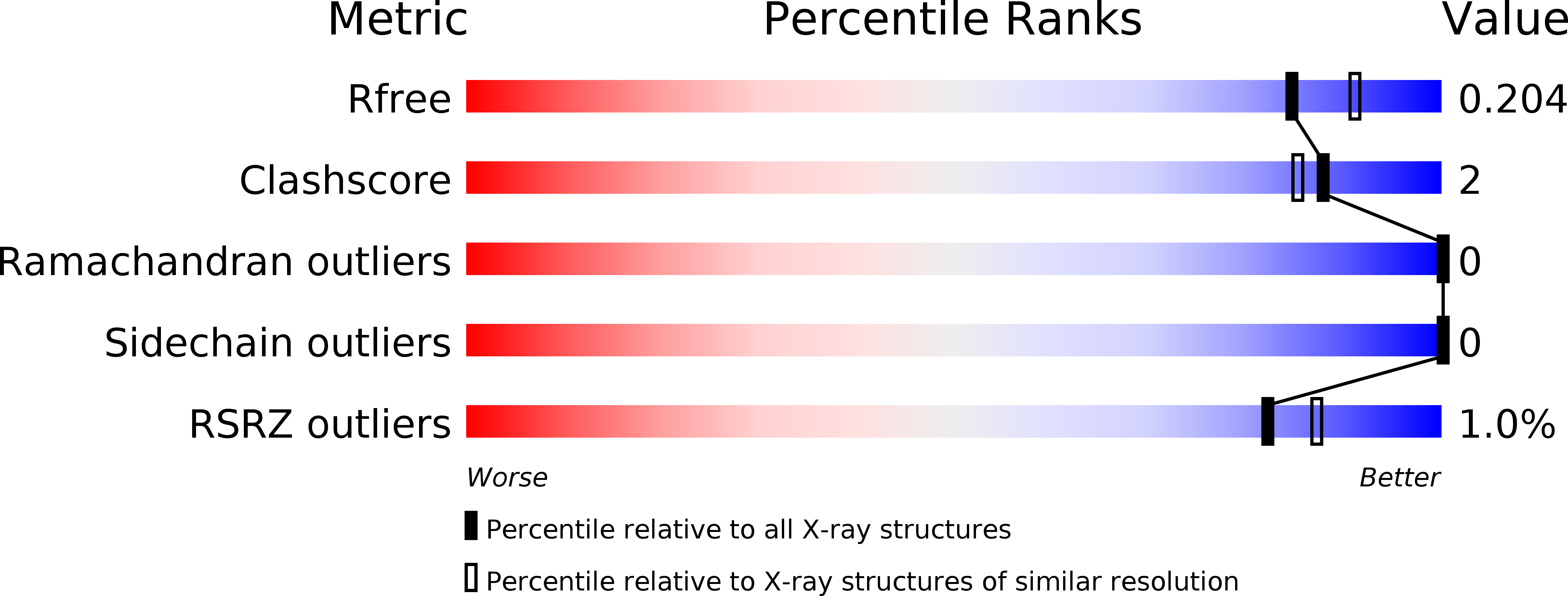
Deposition Date
2018-11-26
Release Date
2019-12-25
Last Version Date
2023-10-11
Entry Detail
PDB ID:
6N6P
Keywords:
Title:
Crystal structure of [FeFe]-hydrogenase in the presence of 7 mM Sodium dithionite
Biological Source:
Source Organism(s):
Clostridium pasteurianum (Taxon ID: 1501)
Expression System(s):
Method Details:
Experimental Method:
Resolution:
1.95 Å
R-Value Free:
0.20
R-Value Work:
0.15
R-Value Observed:
0.15
Space Group:
P 42 21 2


